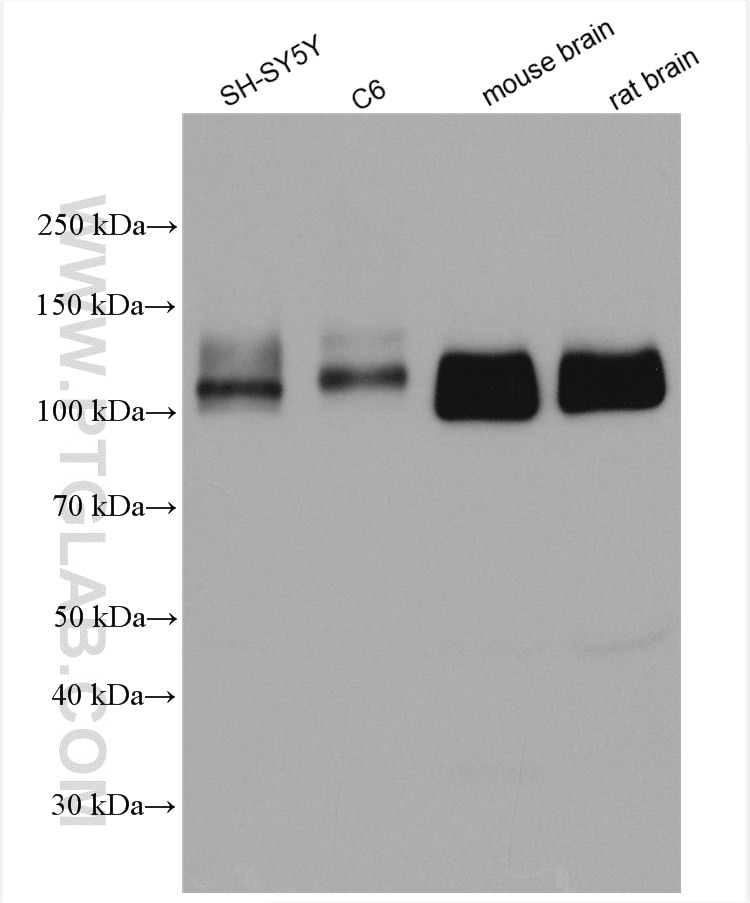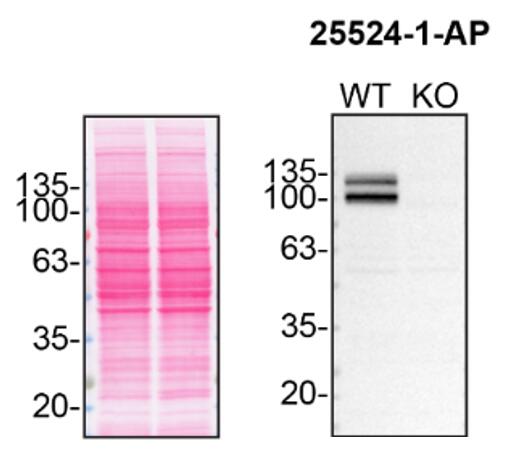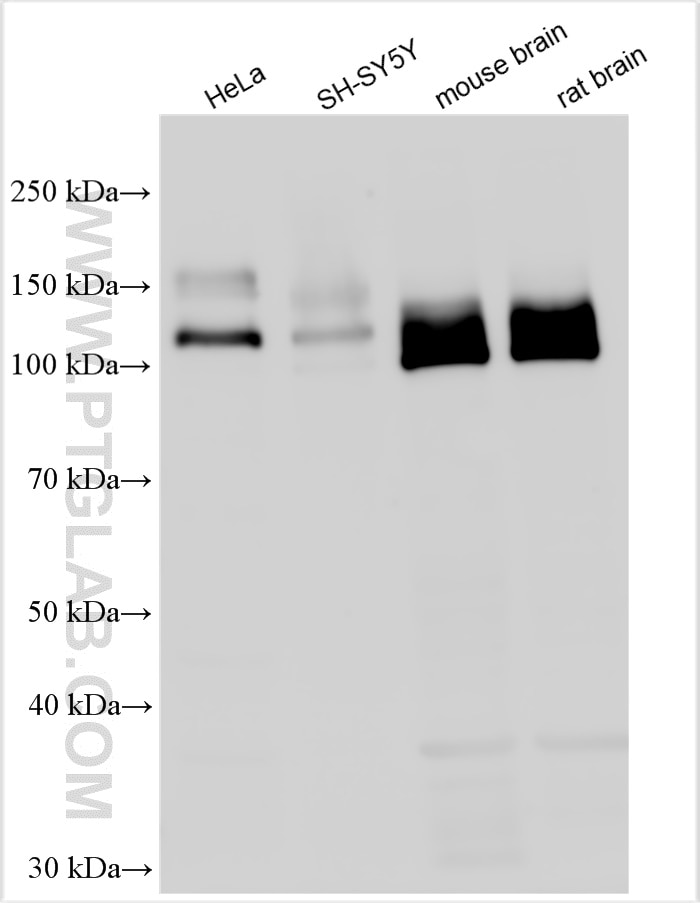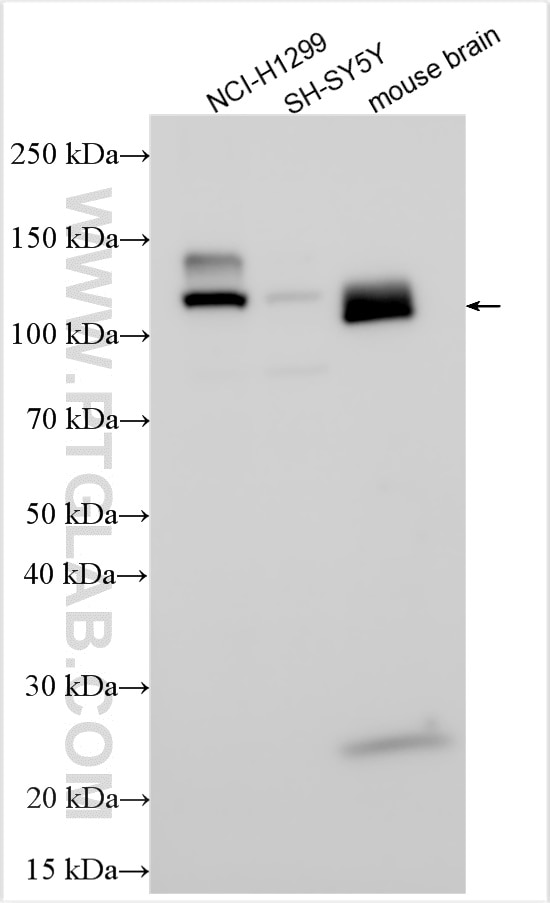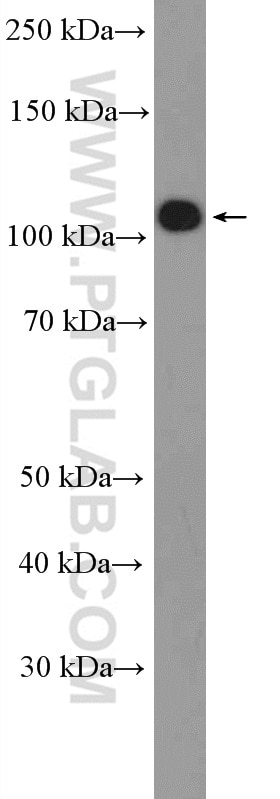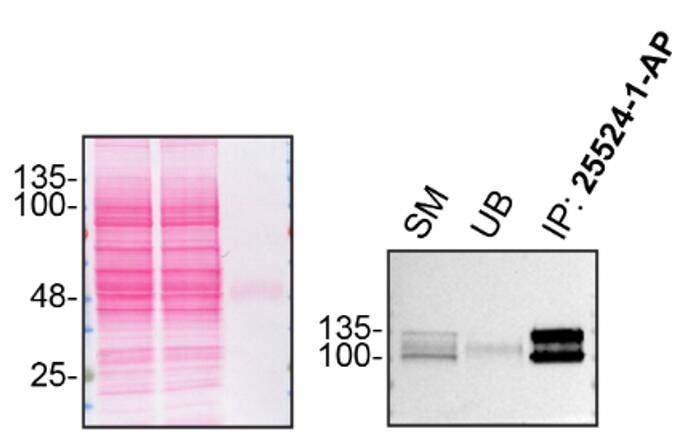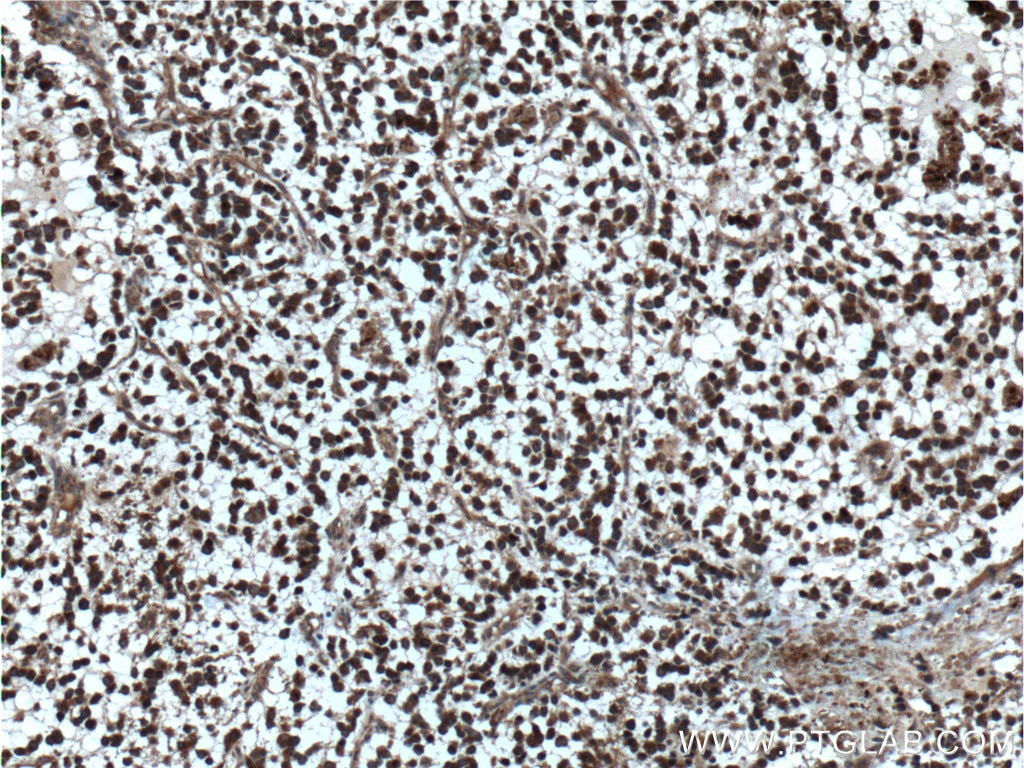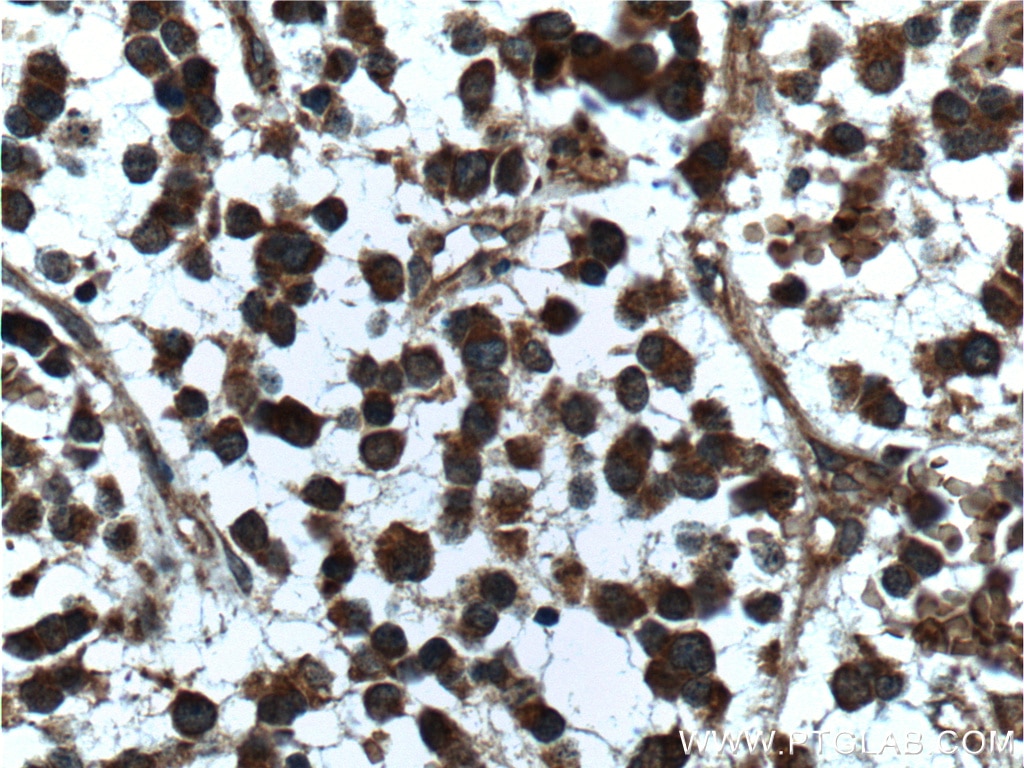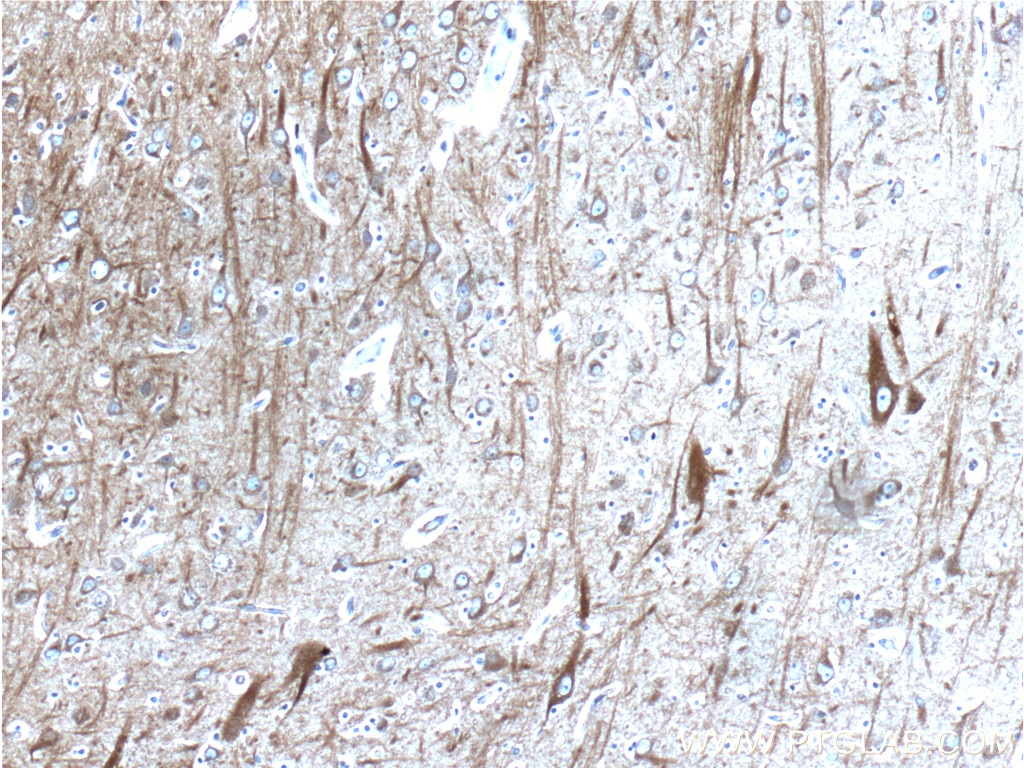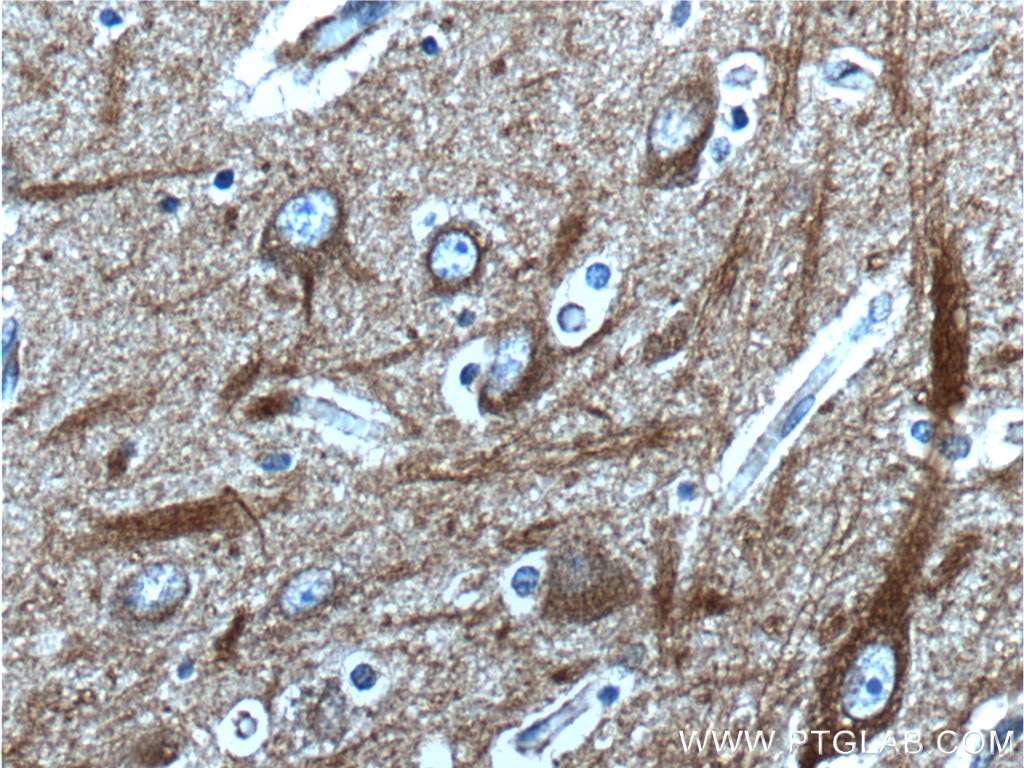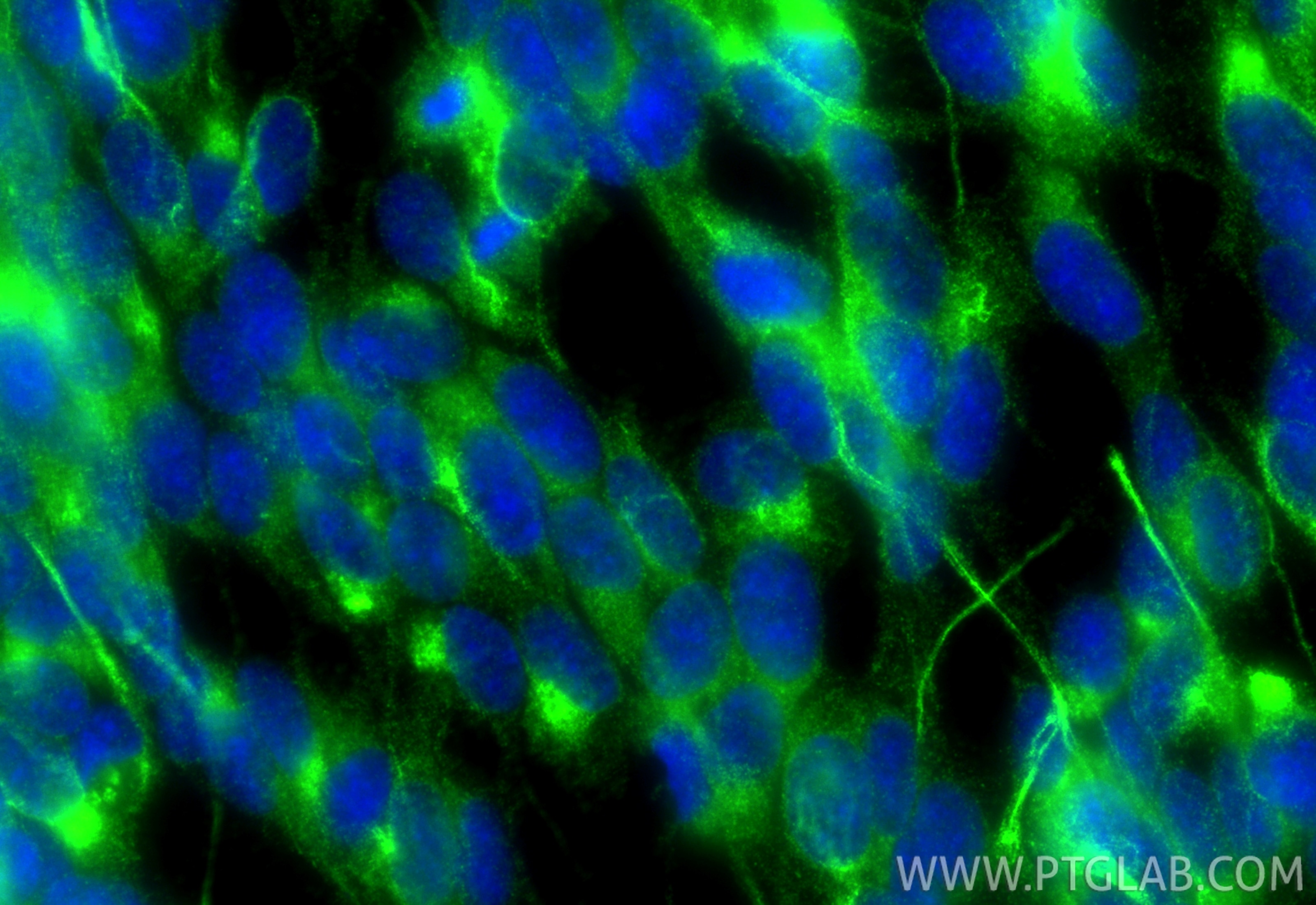Tested Applications
| Positive WB detected in | SH-SY5Y cells, HAP1 cells, HeLa cells, NCI-H1299 cells, mouse brain tissue, rat brain tissue, C6 cells |
| Positive IHC detected in | human gliomas tissue, human brain tissue Note: suggested antigen retrieval with TE buffer pH 9.0; (*) Alternatively, antigen retrieval may be performed with citrate buffer pH 6.0 |
| Positive IF/ICC detected in | SH-SY5Y cells |
Recommended dilution
| Application | Dilution |
|---|---|
| Western Blot (WB) | WB : 1:500-1:2000 |
| Immunohistochemistry (IHC) | IHC : 1:50-1:500 |
| Immunofluorescence (IF)/ICC | IF/ICC : 1:200-1:800 |
| It is recommended that this reagent should be titrated in each testing system to obtain optimal results. | |
| Sample-dependent, Check data in validation data gallery. | |
Published Applications
| WB | See 78 publications below |
| IHC | See 22 publications below |
| IF | See 29 publications below |
Product Information
25524-1-AP targets APP/Beta Amyloid in WB, IHC, IF/ICC, ELISA applications and shows reactivity with human, mouse, rat samples.
| Tested Reactivity | human, mouse, rat |
| Cited Reactivity | human, mouse, rat, zebrafish |
| Host / Isotype | Rabbit / IgG |
| Class | Polyclonal |
| Type | Antibody |
| Immunogen |
CatNo: Ag22408 Product name: Recombinant human APP protein Source: e coli.-derived, PET28a Tag: 6*His Domain: 653-751 aa of BC065529 Sequence: DAEFRHDSGYEVHHQKLVFFAEDVGSNKGAIIGLMVGGVVIATVIVITLVMLKKKQYTSIHHGVVEVDAAVTPEERHLSKMQQNGYENPTYKFFEQMQN Predict reactive species |
| Full Name | amyloid beta (A4) precursor protein |
| Observed Molecular Weight | 100 kDa |
| GenBank Accession Number | BC065529 |
| Gene Symbol | APP |
| Gene ID (NCBI) | 351 |
| RRID | AB_2880118 |
| Conjugate | Unconjugated |
| Form | Liquid |
| Purification Method | Antigen affinity purification |
| UNIPROT ID | P05067 |
| Storage Buffer | PBS with 0.02% sodium azide and 50% glycerol, pH 7.3. |
| Storage Conditions | Store at -20°C. Stable for one year after shipment. Aliquoting is unnecessary for -20oC storage. 20ul sizes contain 0.1% BSA. |
Background Information
Aβ derives from APP via proteolytic cleavage by proteases called α-, β- and γ-secretase. The α-secretase cleavage precludes the formation of Aβ, while the β- and γ-cleavages generate APP components with amyloidogenic features. Amyloid beta A4 precursor protein(APP), encoded by APP gene which locate on human chromosome 21q, is a cell surface receptor and performs physiological functions on the surface of neurons relevant to neurite growth, neuronal adhesion and axonogenesis. APP expressed in all fetal tissues and is pronounced in brain, kidney, heart and spleen, but weak in liver. Defects in APP are the cause of Alzheimer disease type 1 (AD1). Amyloid β (Aβ) precursor protein (APP) is a 100-140 kDa transmembrane glycoprotein that exists as several isoforms. This antibody can recognize several isoforms of both mature and immature amyloid beta (A4) precursor protein, including APP770, APP677, APP695, APP696, APP733, APP751, APP752, and APP639. APP can be cleaved into several chains, this antibody could recognize fragments C99, Amyloid-beta protein 42, Amyloid-beta protein 40, C83, P3(40), C80, Gamma-secretase C-terminal fragment 59, Gamma-secretase C-terminal fragment 57, Gamma-secretase C-terminal fragment 50, C31.
Protocols
| Product Specific Protocols | |
|---|---|
| IF protocol for APP/Beta Amyloid antibody 25524-1-AP | Download protocol |
| IHC protocol for APP/Beta Amyloid antibody 25524-1-AP | Download protocol |
| WB protocol for APP/Beta Amyloid antibody 25524-1-AP | Download protocol |
| Standard Protocols | |
|---|---|
| Click here to view our Standard Protocols |
Publications
| Species | Application | Title |
|---|---|---|
J Clin Invest Chromosomal 3q amplicon encodes essential regulators of secretory vesicles that drive secretory addiction in cancer | ||
Neuron Loss of PYCR2 Causes Neurodegeneration by Increasing Cerebral Glycine Levels via SHMT2. | ||
Small Brain-Penetration and Neuron-Targeting DNA Nanoflowers Co-Delivering miR-124 and Rutin for Synergistic Therapy of Alzheimer's Disease. | ||
Biomater Res Controlled release of Clenbuterol from a hydroxyapatite carrier for the treatment of Alzheimer's Disease | ||
J Exp Clin Cancer Res FOLR2+ macrophage depletion from intestinal metaplasia to early gastric cancer: single-cell sequencing insight into gastric cancer progression | ||
Redox Biol Cognitive enhancement and neuroprotective effects of OABL, a sesquiterpene lactone in 5xFAD Alzheimer's disease mice model. |
Reviews
The reviews below have been submitted by verified Proteintech customers who received an incentive for providing their feedback.
FH Jorge (Verified Customer) (03-28-2023) | Test to evaluate the efficacy of the antibody. Tested on SH-SY5Y APPswe cells differentiated with 10 uM retic acid for 5 days. DAPT treatment 10 uM for 24h. Cells lysed with RIPA buffer. Loading different protein concentrations (ug). Tricine SDS-PAGE 16% acrylamide gel. Transfered on PVDF membrane. Blocking 5% milk. Dilution 1:4000 in TBS-Tw 0.05%.
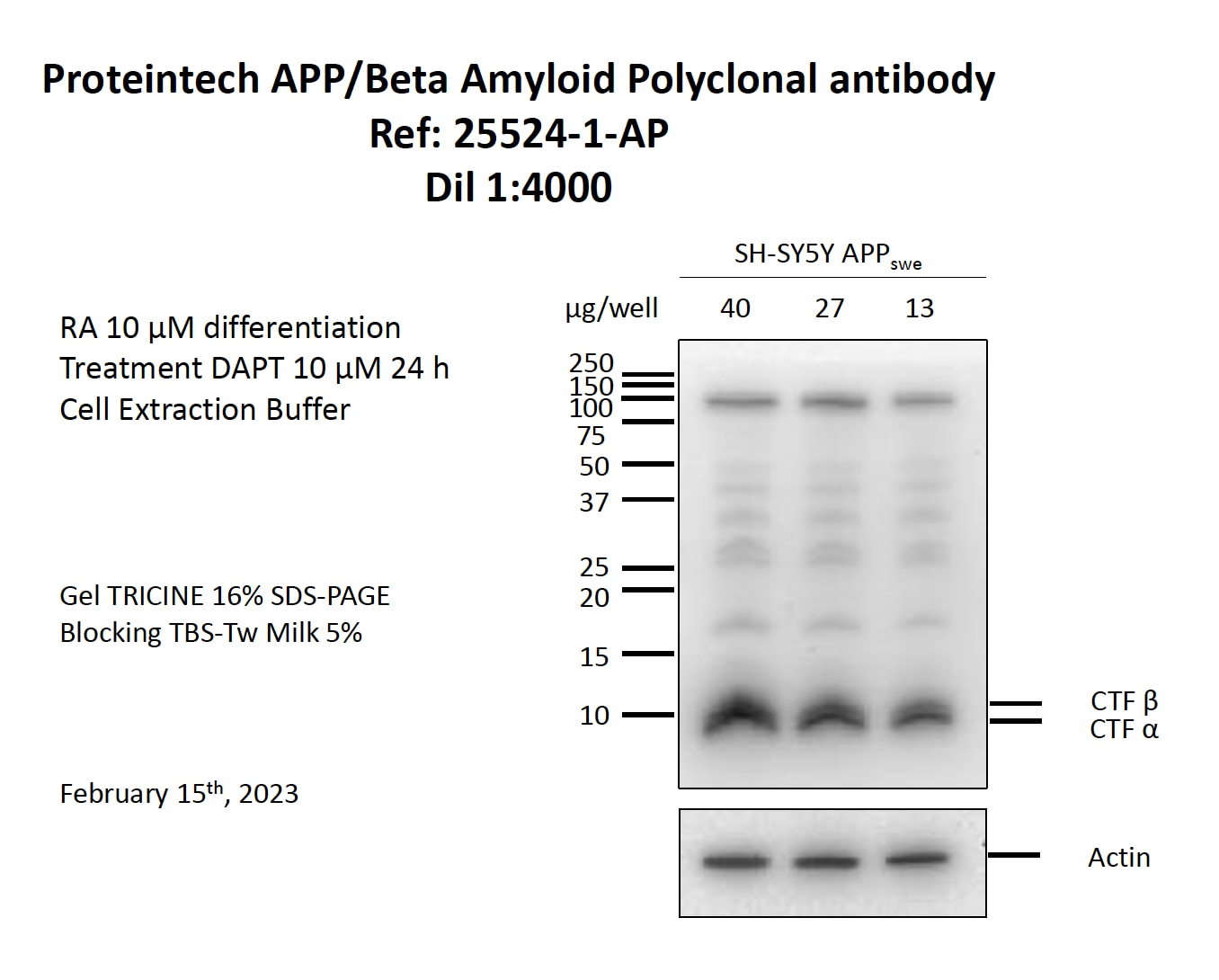 |
FH JIMMY (Verified Customer) (04-15-2019) | This antibody detects APP in the brain of 12 months C57BL/6 mice.
|

